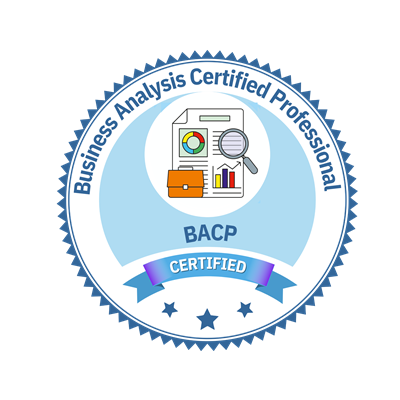The Certification Program is created to give you the essential skills, knowledge, and practical experience needed to succeed as a Business Analyst in today’s global marketplace. It tackles real-world problems faced by business analysts, demonstrates how to use business analysis techniques and tools, and uses exercises to help you apply what you learn in your workplace.
The Business Analysis Certified Professional (BACP)® is for anyone looking to enhance and certify their skills in this important and growing field. The BACP® Certificate series covers the entire process of business analysis, where and how it fits into the project life cycle, and the business context.
The BACP® program focuses on studying current best practices from some of the most successful companies using Business Analysis today. You will learn how to better define and manage requirements, gather information from stakeholders, analyze business processes, and find innovative and efficient solutions to even the most challenging business problems.
E-Course Duration: 20 to 25 Hours

